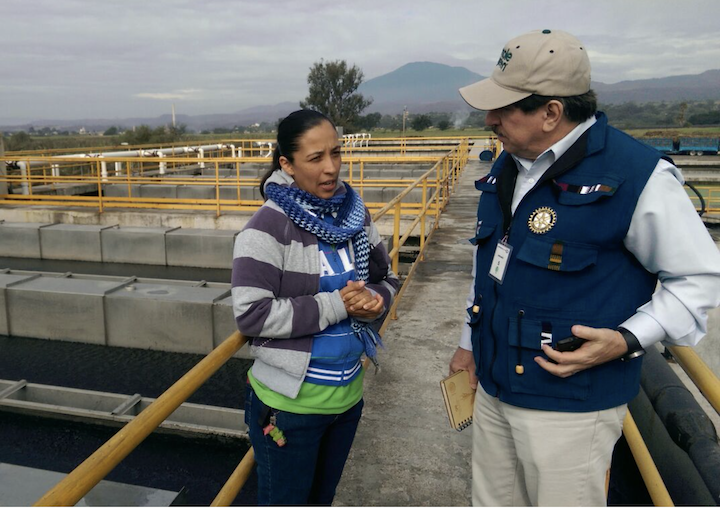As a child growing up in Guadalajara, México, Salvador Rico was told never to swim in the Río Lerma Santiago because of its lethal burden of sewage and industrial pollution. He vowed that when he grew up, he would come back to clean up that river. Now, as a member of South Ukiah Rotary in California, he is keeping the promise through the Club’s Cleaning the Rivers of the World initiative.
Initially, when Salvador tried to organize Rotarians to advocate for solutions, clubs turned him away, saying that Rotary doesn’t do environmental projects because “it’s political.” He didn’t give up. Since 2013, Salvador has been building teams from clubs in Districts 4140, 4130, and 4110 in Mexico and 5130 in the U.S. “We’re communicating with industries,” he explains, “to persuade them to become the heroes of the story.” He’s also working to create a partnership between ESRAG and three other Rotary Action Groups – Peace, WASH, and Community and Economic Development – because the skills of all four can promote win-win approach which can bring all the stakeholders together.
The river clean-up days are our “shock and awe campaign,” says Salvador. “Environmental awareness and education are the vaccine to the pollution. The clean-ups serve to remove pollution, but the more important impact is to create environmental awareness by making the pollution crisis obvious to a wider and wider circle of people along the watersheds where the clean-ups are being done.
“It is extremely important that Rotarians and Rotaractors form alliances with government, universities, high schools, NGOs, and other groups, and promote their efforts via social media and all communication outlets available,” he adds. “This inspires others to take action and to develop behavior change in the population.”
Salvador has proven that Rotarians can persuade polluters to become protectors. Heeding Rotarians, a sugar mill that previously dumped organic waste into the Río Ameca, a tributary of the Lerma, invested in its own wastewater treatment plant. The company was burning 100,000 metric tonnes of cane straw a year, but now is composting more and more of it.
The Rio Lerma-Santiago is fouled by wastes dumped by thousands of factories and municipalities. On July 27, 2019, Salvador and other Rotarians took water samples from the river in El Salto Jalisco México. On that date they made a video, inviting all stakeholders to unite and to work together to find a solution to the contamination of México’s second-longest river.
The evidence they’ve provided has moved local leaders and civic groups to advocate for a change in Mexico’s law environmental regulations, which date back to the 1950s. In March 2020, all the Rotary Clubs of Toluca, México signed an agreement of cooperation to help eliminate the pollution in the Río Lerma.

